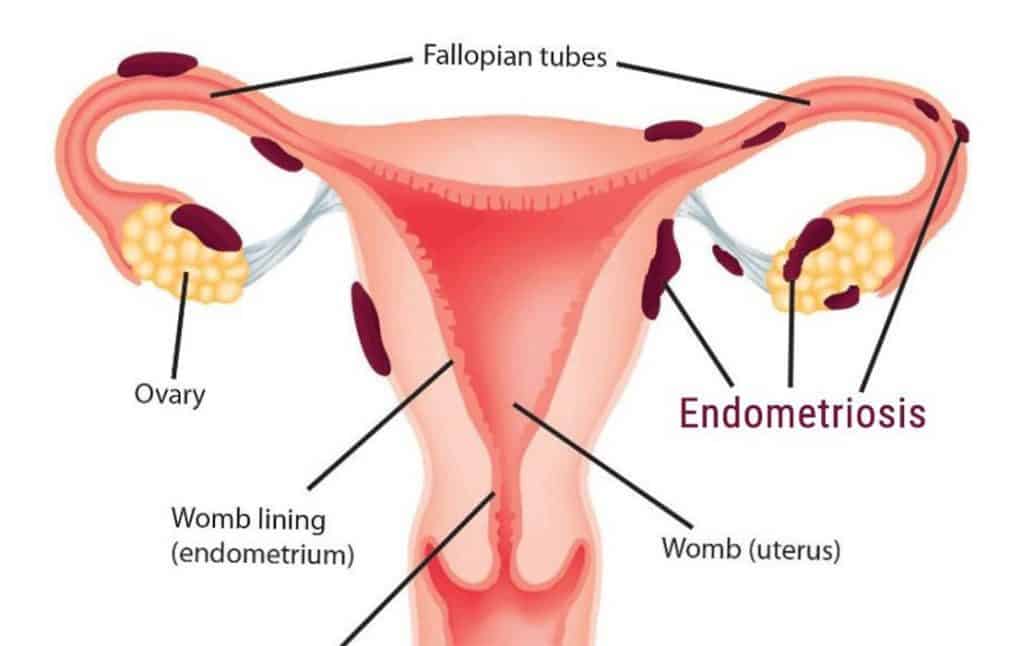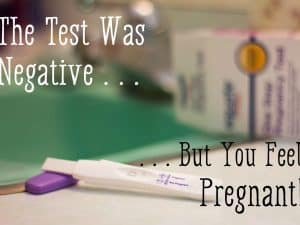
Table of Contents
Getting pregnant with endometriosis naturally may be difficult, but it isn’t impossible. If you have endometriosis and wish to get pregnant, there are medical choices, but at times they are complicated and expensive, with variable degrees of success.
Despite this, many women with endometriosis do become pregnant, and they report that the joy of becoming a parent outweighs the mental and physical challenges they’ve faced.
But what exactly is endometriosis and what are the chances of getting pregnant with endometriosis naturally?
Let’s find out!
What Is Endometriosis?
Endometriosis is a condition in which the minute pieces of tissue compared to the inner lining of the uterus (endometrium) develop outside of the womb. It can produce symptoms such as:
- Pelvic discomfort
- Cramps
- Excessive bleeding
- Bleeding between periods
- Pain during intercourse
- Pain with bowel movements
This condition is common in 10% to 15% of females of childbearing age.
Causes Of Endometriosis
According to a survey conducted at Yale in 2012, 30 to 50% of women with endometriosis are unable to conceive. Even women with moderate endometriosis have a 48% lower chance of becoming pregnant than women who do not have the disease.
The actual reason for infertility in endometriosis-affected women varies from person to person. Multiple factors can play a role in some circumstances. Among the most frequent are:
1) Ovarian Cysts
Endometriosis has the potential to extend to the ovaries and cause cysts. These cysts, known as endometriomas, can induce infertility by obstructing the release of an egg from its follicle or the movement of the egg into the fallopian tube, unlike other ovarian cysts.
2) Retrograde Menstruation
When some of the womb’s lining runs backward via the fallopian tubes and into the abdomen instead of leaving the body as a period, this is known as retrograde menstruation. Most women experience this as part of their monthly cycle, although the body usually clears the tissues on its own. Endometriosis develops when this tissue adheres to pelvic or abdominal organs or the wall. However, it is unknown why this occurs in only certain women.
3) Genetics
Endometriosis is more likely to impact you if a female member of your family (particularly a parent or sister) has the disease. It can affect women of various ethnic backgrounds, although it is more prevalent in Asian women than white women, and it is less common in African-Caribbean women.
4) Adhesions
Tissue overgrowth can result in adhesions. Adhesions are scars that occur between internal body tissues, causing them to cling together. This can prevent an egg from reaching the uterus through the fallopian tube, or sperm from reaching the uterus through the fallopian tube.
5) Immunity
It’s possible that certain women’s immune systems are unable to eliminate the tissue, putting them at a higher risk of endometriosis.
Stages Of Endometriosis
To categorize the severity of endometriosis, the American Society of Reproductive Medicine devised a staging system.
The technique for determining endometriosis stages is based mostly on how much tissue has developed and where it has grown, therefore it does not necessarily represent the level of discomfort or the risk of infertility. For example, a woman in stage 1 may be in discomfort, but a woman in stage 4 may be pain-free.
Endometriosis | Condition |
Stage 1 |
|
Stage 2 |
|
Stage 3 |
|
Stage 4 |
|
Effect Of Endometriosis On Pregnancy
Experts are still attempting to figure out what causes endometriosis and how it affects fertility. However, they believe that endometriosis tissue implants may impact the immune system, causing inflammation and preventing sperm from reaching the egg or allowing an embryo to form.
Before implanting into the uterine lining, an egg must travel from the ovary, down the fallopian tube, and into the uterus for fertilization. If a woman’s fallopian tube lining develops endometriosis, the tissue may prevent the egg from reaching the uterus. This is what prevents you from getting pregnant with endometriosis.
Endometriosis-Related Infertility Treatment
If you haven’t become pregnant after 6 months of unprotected intercourse with your spouse, you need to consult your doctor. You also need to consult your doctor or a specialist if you haven’t been diagnosed with endometriosis but are having symptoms.
A fertility expert can collaborate with your doctor to identify the severity of your endometriosis symptoms and the variables that are contributing to your reproductive problems.
Start by speaking with your doctor if you suspect you have endometriosis. Endometriosis is frequently confused with other disorders that cause pelvic discomforts, such as
- Pelvic inflammatory disease
- Ovarian cysts
- Irritable bowel syndrome (IBS)
However, the correct tests might help you figure out what you’re up against and obtain the therapy you need.
Freezing Your Eggs
Endometriosis might damage your ovarian reserve, thus some doctors may advise you to freeze your eggs now in case you want to get pregnant later. This is a pricey alternative that isn’t normally covered by insurance.
Superovulation & Intrauterine Insemination (SO-IUI)
Superovulation and intrauterine insemination (SO-IUI) is a fertility treatment option for women with normal fallopian tubes, minor endometriosis, and a partner with healthy sperm.
Hormone Treatment
There are a variety of hormonal therapies available for women with endometriosis. However, they are not suited if you are attempting to conceive since they either resemble pregnancy (such as the contraceptive pill) or menopause.
Medication
Clomiphene and gonadotropin, for example, are fertility drugs that can be prescribed by a doctor. These drugs aid in the production of two to three mature eggs. Progestin injections may also be prescribed by a doctor.
Ultrasound & Sperm Implantation
Ultrasounds may be used on a person who is attempting to conceive to check that the eggs are fully formed. When the eggs are matured, a doctor will implant sperm from a partner.
In vitro fertilization (IVF)
In vitro fertilization (IVF) is a procedure that includes taking an egg from you and sperm from your spouse and fertilizing them together in a laboratory. The egg is subsequently fertilized and inserted into the uterus outside of the body.
Increase Chances Of Getting Pregnant With Endometriosis
There is currently no proof that medication can increase a woman’s chances of becoming pregnant if she has endometriosis. Doctors may, however, give progestins or other drugs to boost the number of pregnancy hormones in the body.
When you have endometriosis and are attempting to conceive, it’s also critical to maintain a healthy lifestyle. This can assist your body to minimize inflammation and prepare it to support your baby’s growth and development throughout a healthy pregnancy.
Getting Pregnant With Endometriosis With Surgical Procedure
Surgery can help fertility in women with little or mild endometriosis. It should be considered with you if you are unable to conceive and the condition has been identified as a probable cause of your infertility.
1. Laparoscopy
Laparoscopy, commonly known as keyhole surgery, is the most frequent form of surgery. Although this is a successful therapy, there is a chance that some tissue will be left behind or grow back, causing endometriosis to return.
2. Laparotomy
A laparotomy is another type of surgery that can be performed. This procedure should be performed only in exceptional circumstances since it is more intrusive, requiring a bigger cut along the bikini line and the excision of tissue related to the afflicted region.
Getting Pregnant With Endometriosis Naturally
Wondering if there are chances of getting pregnant with endometriosis naturally? The answer is straightforward: yes!
Of course, you should consult a doctor beforehand, but having endometriosis does not rule out the possibility of becoming pregnant. Many women do, even those with advanced cancer.
But the question is how to increase the chances of getting pregnant with endometriosis?
Most specialists recommend trying to conceive naturally for six months in these situations (rather than the 12 months recommended for other women). If you are unable to conceive within that time frame, you should consult a fertility expert.
However, some women, especially those who are older, will seek treatment from a professional. Natural fertility begins to wane beyond the age of 35. Those six months could be better spent in specialized care for some people.
Getting Pregnant With Endometriosis Naturally Final Thoughts
Endometriosis affects up to 50% of women, making it difficult to conceive. Poor egg quality, adhesions, or ovarian cysts that prevent fertilization or implantation are some of the causes. Women in stages 1 and 2 are more likely to become pregnant than those in stages 3 and 4, however, this is not always the case.
Endometriosis patients may experience greater rates of:
Premature birth
Placenta previa (especially in those who had surgery to treat their endometriosis)
Preeclampsia
But there’s nothing to worry about! Many women with endometriosis are able to conceive and give birth to healthy children. The idea is to start talking about your possibilities for conception as soon as you think about getting pregnant.
If you haven’t conceived after 6 months of attempting to conceive, consult your doctor.





